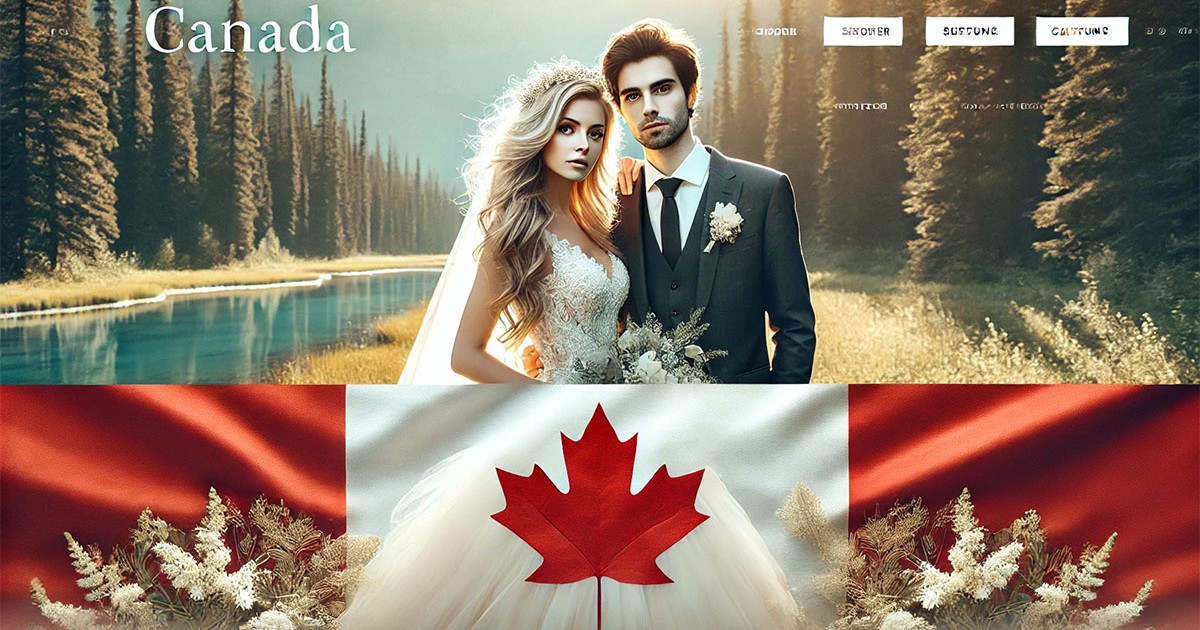How to Get Married to Canadian Singles: Steps for Non-Canadian Citizens
How to Get Married to Canadian Singles: Steps for Non-Canadian Citizens
If you’re a non-Canadian citizen planning to marry a Canadian single, understanding the steps and legal requirements will help make the process smooth and straightforward. Here’s a step-by-step guide for non-Canadians on how to get married to a Canadian, from preparing documents to understanding visa options.
1. Understand Canada’s Marriage Laws and Requirements
Marriage laws in Canada vary by province, but the general requirements are similar across the country. Some key points to remember are:
Legal Age for Marriage: Both parties must be at least 18 years old, though some provinces allow marriage at 16 with parental consent.
Proof of Marital Status: You’ll need to show that you’re legally free to marry, such as providing a single status affidavit if you’re divorced or widowed.
Marriage License: A marriage license must be obtained before the wedding. Both parties may need to apply together, depending on the province.
2. Gather Required Documents
Prepare all necessary documents in advance, as some may take time to secure. The key documents include:
Passport or Valid ID: Proof of identity is required for both parties.
Single Status Affidavit: Non-Canadian citizens may need to provide a sworn affidavit or certificate from their home country, confirming their marital status.
Divorce or Death Certificates (if applicable): If you were previously married, you’ll need official proof of divorce or a death certificate of the former spouse.
These documents may need to be translated into English or French and certified.
3. Obtain a Marriage License in Canada
A marriage license is required to legally marry in Canada, and it must be obtained from a local government office or service provider. This license is typically valid for three months, though it varies by province.
Where to Apply: Visit a service office in the province where the marriage will take place.
Fees and Wait Time: Marriage licenses cost between CAD 100-150, and they’re often issued on the same day. Be sure to check specific wait times in the chosen province.
4. Plan the Wedding Ceremony
In Canada, both civil and religious ceremonies are legally recognized. You’ll need an officiant who is licensed to perform marriages in Canada. Consider whether you’ll have a small civil ceremony or a larger event, and make arrangements for an officiant accordingly.
Civil Ceremony: Conducted by a government official or justice of the peace, usually at a courthouse or municipal office.
Religious Ceremony: Requires an officiant authorized by the respective religious institution.
5. Apply for a Spousal Visa (If You Plan to Live in Canada)
After marriage, non-Canadian spouses can apply for permanent residency through Canada’s Family Sponsorship program. This allows Canadian citizens to sponsor their spouses for residency in Canada.
Eligibility for Sponsorship: The Canadian partner must be 18 or older, have proof of stable income, and commit to financially supporting the spouse for up to three years.
Documents for Application: Proof of relationship, marriage certificate, photos, and correspondence are typically required to prove the authenticity of the relationship.
Processing Time: Family sponsorship applications can take 12-24 months to process, so it’s recommended to start early.
6. Prepare for an Interview (If Required)
In some cases, immigration officials may require an interview to verify the legitimacy of the marriage. This step is more common if there are discrepancies in the application or if additional information is needed. Prepare by gathering documentation of shared experiences, such as photos, messages, and evidence of travel together.
7. Adjust to Life in Canada as a Resident
Once approved for residency, non-Canadian spouses have the right to live, work, and study in Canada. To adapt to life in Canada, it can be helpful to learn about healthcare, find employment resources, and join local community groups to ease the transition.
Conclusion
Marrying a Canadian single as a non-Canadian citizen requires careful preparation and adherence to Canadian marriage laws. By following these steps—preparing documents, securing a marriage license, planning your ceremony, and applying for residency—you’ll be well-equipped for a smooth and successful marriage journey in Canada.
- Category:
- VISA - Sponsor - Interview
- 1 Nov, 2024
-
Like it No likes
- 1379 views
- No comments














